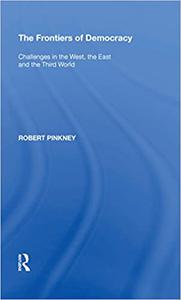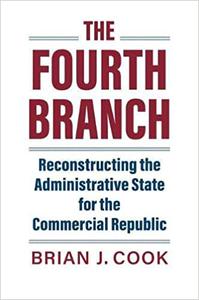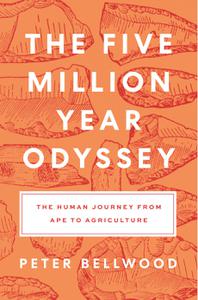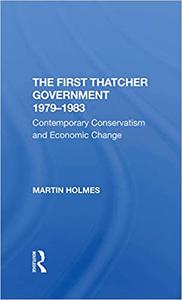
Robbin F. Laird, "The Future Of Deterrence: Nato Nuclear Forces After Inf"
English | ISBN: 0367292335 | 2019 | 200 pages | EPUB | 687 KB
The editors would like to express their thanks to a number of colleagues whose insights and comments contributed to the development of the book. Among those who were particularly helpful were Robert Nurick, Vic Utgoff, Mike Clarke, Jorg Baldouf, Jean Chabaud, John Roper, Edwina Moreton, Lawrence Freedman, Francois Heisbourg, and Harley Balzer. We are particularly grateful to General William Y. Smith, President of the Institute for Defense Analyses, for his intellectual encouragement.

Naoto Kan, "The Fukushima Nuclear Power Plant Disaster and the Future of Renewable Energy "
English | ISBN: 1501726935 | 2018 | 42 pages | EPUB | 489 KB
In a speech delivered in Japanese at Cornell University, Naoto Kan describes the harrowing days after a cataclysmic earthquake and tsunami led to the meltdown of three reactors at the Fukushima Daiichi Nuclear Power Plant. In vivid language, he tells how he struggled with the possibility that tens of millions of people would need to be evacuated.

Robert Pinkney, "The Frontiers of Democracy: Challenges in the West, the East and the Third World"
English | ISBN: 0815397763 | 2017 | 225 pages | EPUB | 700 KB
Focusing in particular on the past decade, this enlightening volume explores the changing fortunes of democracy in the West, South East Asia and the Third World. It highlights the contrast between the expansion of democracy in quantitative terms, and the problems in maintaining or improving the quality of democracy. It examines such threats to democracy as public apathy, media trivialization, the power of big business and consumerism in the West, powerful states in South East Asia, and poverty and weak government in Africa, as well as the ubiquitous challenges of the global economy and the 'war on terrorism'. The author argues that a continued decline or stalling of democracy is not inevitable, but that it will require considerable human effort to claim or reclaim the political sphere.

Robert E. Bedeski, "The Fragile Entente: The 1978 Japanchina Peace Treaty In A Global Context"
English | ISBN: 036730774X | 2022 | 258 pages | EPUB | 665 KB
Between early 1978 and late 1980, power relationships in the Pacific region underwent historic transformation. Deng-Xiaoping, re-emerging as a key leader in the People's Republic of China, demonstrated pragmatism in domestic and foreign policy. Beijing negotiated a Peace and Friendship Treaty with Japan, apparently opening an era of Sino-Japanese economic cooperation. Moscow viewed this development with alarm, fearing it would lead to a three-way alliance including the United States. Meanwhile, Japan foreswore any military significance in closer links with the PRC, but by succumbing to the Chinese demand for inclusion of a treaty clause denouncing Soviet hegemony, became an involuntary participant in the Sino-Soviet conflict.

Matthew Meyer, "The Fox's Wedding: A Compendium of Japanese Folklore"
English | 2022 | ISBN: 0985218479 | 236 pages | PDF | 12.8 MB
Throughout history, people have invented supernatural explanations for mysterious phenomena. Strange sounds heard deep in the woods, pebbles falling from the sky, even universal concepts like good and bad luck-all were the work of spirits. Things understood in the modern world, like thunder and lightning, mental illnesses, and infectious disease were equally blamed on demons, ghosts, monsters, and mischievous magical animals. In Japan, one species in particular was frequently blamed for peculiar occurrences: foxes.

Everisto Benyera, "The Fourth Industrial Revolution and the Recolonisation of Africa: The Coloniality of Data "
English | ISBN: 0367744155 | 2021 | 196 pages | EPUB | 619 KB
This book argues that the fourth industrial revolution, the process of accelerated automation of traditional manufacturing and industrial practices via digital technology, will serve to further marginalise Africa within the international community.

Brian J. Cook, "The Fourth Branch: Reconstructing the Administrative State for the Commercial Republic "
English | ISBN: 0700632077 | 2021 | 288 pages | EPUB | 779 KB
In The Fourth Branch: Reconstructing the Administrative State for the Commercial Republic Brian J. Cook confronts head-on the accumulating derangements in the American constitutional system and how the administrative state has contributed to the problems, how it has been a key force in addressing the troubles, and how it can be reformed to serve the system better. The Fourth Branch is anchored in a powerful theory of regime design that guides a freshly comprehensive account of the historical development of successive political economies and administrative states in the United States and provides the normative grounding for more far-reaching constitutional change. Cook calls for a decisive, pattern-breaking response in the form of a constitutional redesign to accommodate a fourth branch, an administrative branch.

The Five-Million-Year Odyssey: The Human Journey From Ape to Agriculture by Peter Bellwood
English | August 2nd, 2022 | ISBN: 0691197571 | 385 pages | True PDF | 30.07 MB
The epic story of human evolution, from our primate beginnings more than five million years ago to the agricultural era

Martin Holmes, "The First Thatcher Government, 19791983: Contemporary Conservatism And Economic Change"
English | ISBN: 0367292165 | 2019 | 238 pages | EPUB | 323 KB
Originally published in 1985. This book has two aims: first, to analyse the change in economic policy formation between 1979 and 1983 and the way in which policy sources were translated into reality, and second, to analyse how the first Thatcher government has changed the nature of contemporary Conservatism. These two themes overlap so consistently

Murray Armstrong, "The Fight for Scottish Democracy: Rebellion and Reform in 1820"
English | ISBN: 0745341322 | 2020 | 304 pages | EPUB | 824 KB
Three Scottish weavers, James Wilson, Andrew Hardie and John Baird, were hanged and beheaded for high treason in the summer of 1820. Nineteen more men were transported to the penal colony of Botany Bay. Their crime? To have taken up arms against a corrupt and nepotistic parliament, and the aristocratic government that refused to reform it.


